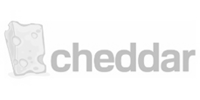Listen on the Podcast
One the show today I’m breaking down the differences between the different mortgage options and helping you decide which is best for you.
Should you go for a conventional loan or would you be better with an FHA loan? And now much mortgage do I need before I am required to move into a jumbo loan? Or what about qualifying for a VA loan or a USDA loan?
I will help you break down the answers to all these questions and more so you have a jumpstart when it comes time to apply for a mortgage or to refinance your current mortgage.
The Conventional Mortgage Loan
Conventional mortgage loans are the most common mortgage loan today. Unlike government-backed loans such as the FHA, VA and USDA loans, conventional loans are guaranteed by Fannie Mae and Freddie Mac. When the loan comforms to the standards set by Fannie Mae and Freddie Mac, the loan is said to be a conforming loan and is guaranteed by either Fannie or Freddie. The guarantee from Fannie and Freddie is good thing for lenders, which helps you the borrower obtain a convetional mortage.
Getting a Conventional Loan
- Minimum credit score of 620
- Minimum 3% down payment
- Private Mortgage Insurance if down payment less than 20%. PMI is automatically cancelled when the loan reachers 78% loan-to-value, usually between years 9 and 10 of the loan on a 30-year mortgage.
- Mortgage Terms from 10 to 30 years
- Can be used for primary residence, second home, investment property, and other real estate opportunities.
The Jumbo Mortgage Loan
Fannie Mae and Freddie Mac set standards for a loan to be a conforming loan. One of the standards is the loan amount, which in 2021 is a maximum of $548,250, or $822,375 in high-cost-of-living areas. Therefore, if you were looking to obtain a mortgage for more than the conforming limits, then you would need a noncoforming loan.
A jumbo mortgage loan, or a jumbo loan, is the mortgage loan required to obtain a loan outside of the conforming loan limits. Since the loan is not conforming, there is also no guarantee for the lender from Fannie Mae or Freddie Mac. Therefore, this loan creates more risk for the lender, and the risk is transferred to the borrower in the form of tighter restrictions in getting a jumbo loan approval.
Getting a Jumbo Loan
- Minimum credit score of 700, although some lenders may require even higher credit scores.
- Down payments will be higher than for conforming conventional loans. Often lenders will require 20% or more.
- Larger cash reserves, often being at least 6 months worth of mortgage payments in cash reserves.
- Added fees to obtain a mortgage. Often lenders will require up to 2 appraisals for the home.
The FHA Mortgage
The FHA loan is a great loan for first-time-home buyers and for those with little or poor credit history. The FHA loan is a government backed loan, where the Federal Housing Administration (FHA) will insure the lender if the borrower were to default on the loan.
With the insurance from FHA, lenders are able to loosen restrictions for borrowers to help them obtain a loan.
Getting a FHA Loan
- Minimum credit score of 580
- Minimum 3.5% down payment
- Mortgage Insurance Premium is more expensive than Private Mortgage Insurance with a convention loan and will last either 11 years or for the life of the loan.
- Primary residences only
The VA Mortgage
The Department of Veterans Affairs guarantees a portion of the loan to the lender for veterans, active-duty military, and surviving spouses of veterans.
VA loans have many perks, including zero down payment and no PMI/MIP.
Getting a VA Loan
- Minimum credit score set by the lender
- No minimum down payment
- No Privatge Mortgage Insurance, but a one-time VA funding fee
- Primary residences only
The USDA Mortgage
The U.S. Department of Agriculture guarantees lenders via the USDA loan program for those looking to purchase a home in a rural area in America, and those who have lower income and poor credit.
The one key factor to a USDA loan is the term “rural”, which means a population limits between 20,000 and 35,000 depending on the area of the country. Also, USDA loans are the only loans to impose income limitations; meaning if you make too much you will not qualify for a USDA loan.
Getting a USDA Loan
- No minimum credit score, instead set by the lender.
- No down payment requried.
- Income limitations set to 115% of the median household income of the area for the mortgage.
- Geographical limitiations set to rural areas as defined by the USDA.
Summary
Before you sit down with your loan officer, listen to the entire episode and get a full understanding of how each loan works. The goal for this episode isn’t to be a mortgage loan expert, but to simply have an understanding of how each loan works before you meet with the mortgage team.
If you’re in the state of Arizona, I only recommend you visit OneAZ Credit Union for your mortgage needs. Tell them Money Peach sent you and they will take special care of you!
Do You Have a Budget that Actually Works?

The first step to any solid financial plan is to tell your money where to go instead of wondering where it went.
Here are the same budget templates I use and I will also walk you step-by-step with how to use them.
They’re all yours now!
Thanks so much for listening to the show and if you feel the content of this podcast was helpful, please subscribe to the podcast where you listen and leave a review!
Today’s show was brought to you by OneAZ Credit Union — my very own credit union I have been proud a member of since 2011.

If you live in Arizona and are looking for a large credit union with a local, customer-focused feel for your personal or business banking needs, look no further than OneAZ Credit Union.






